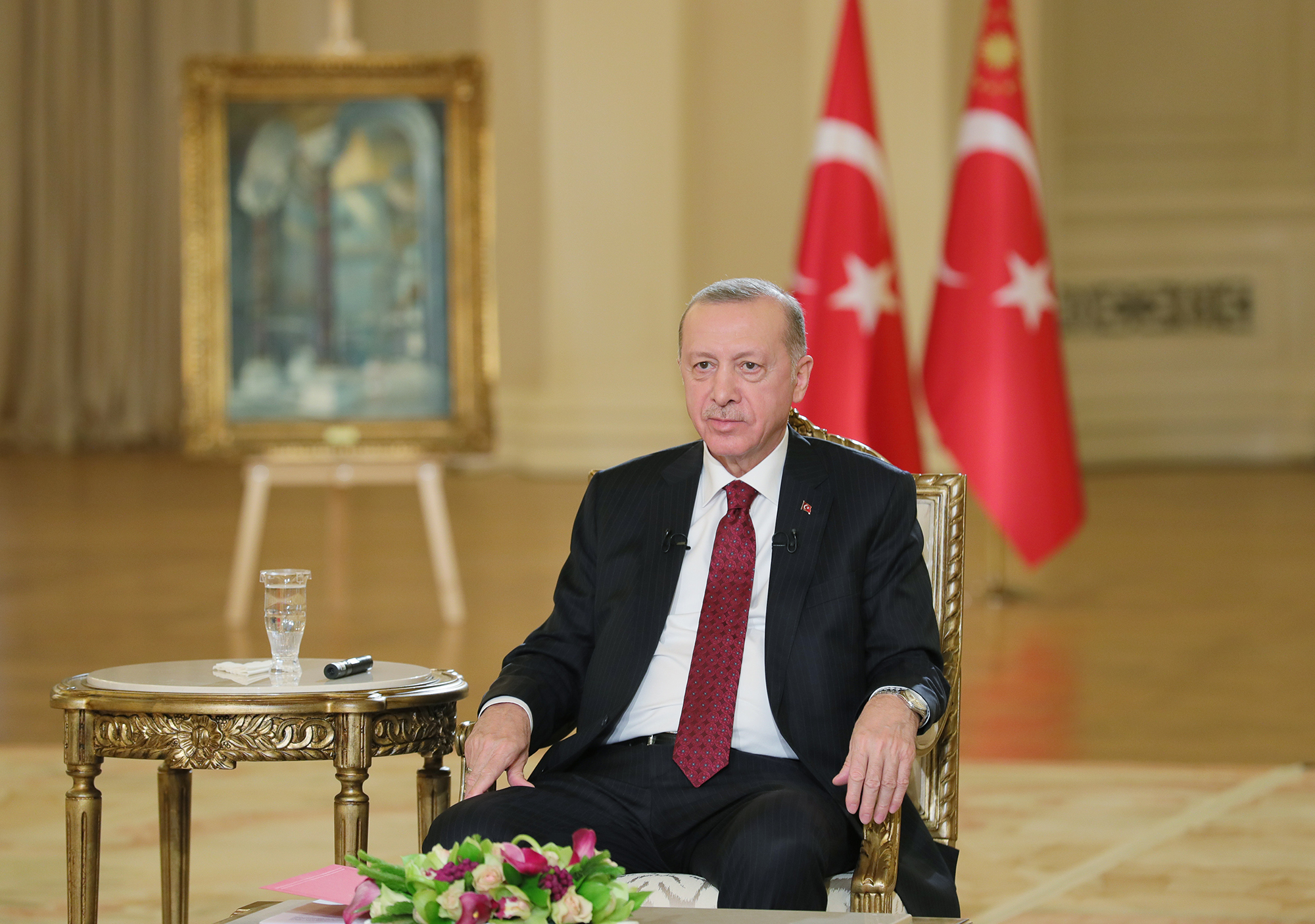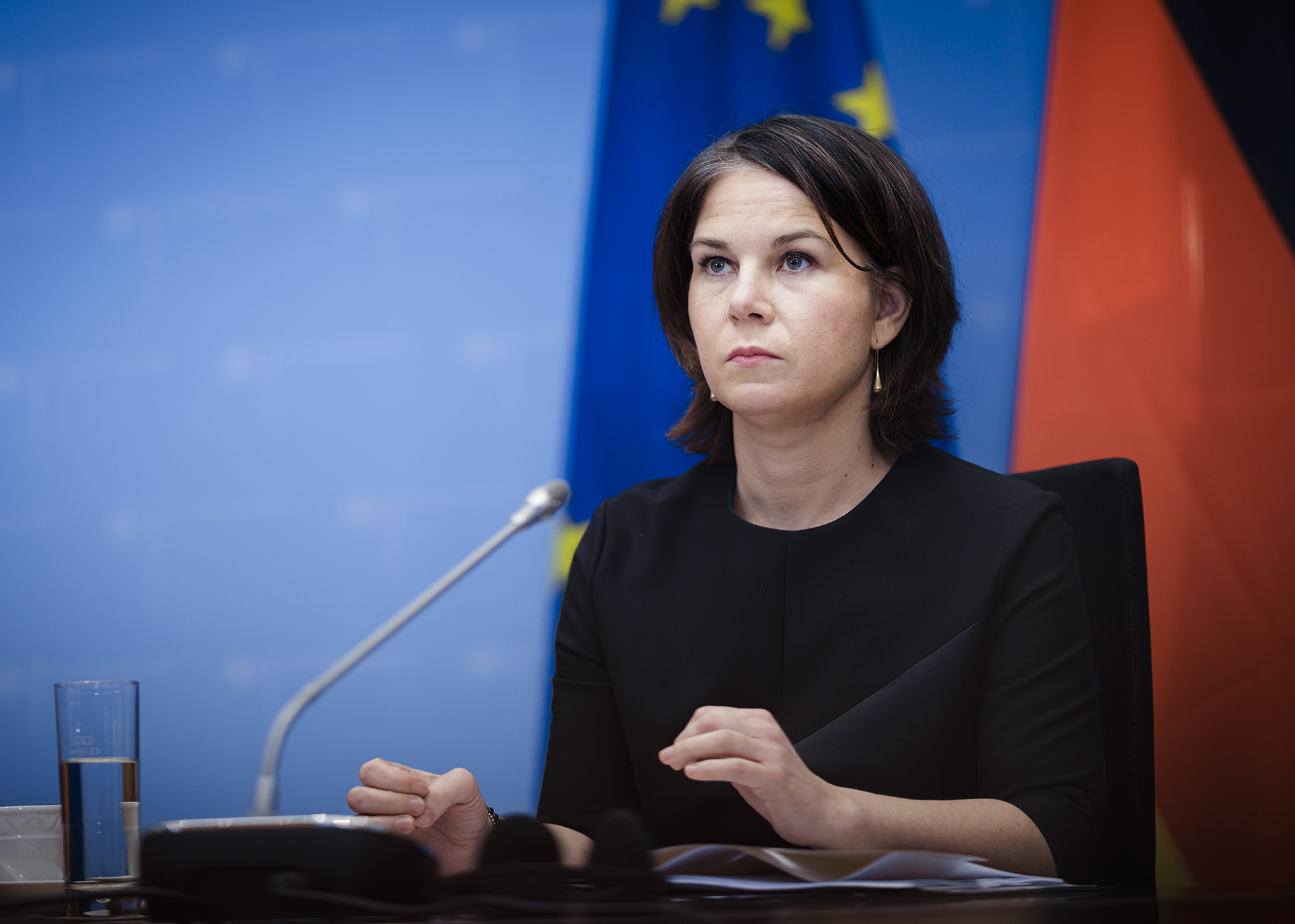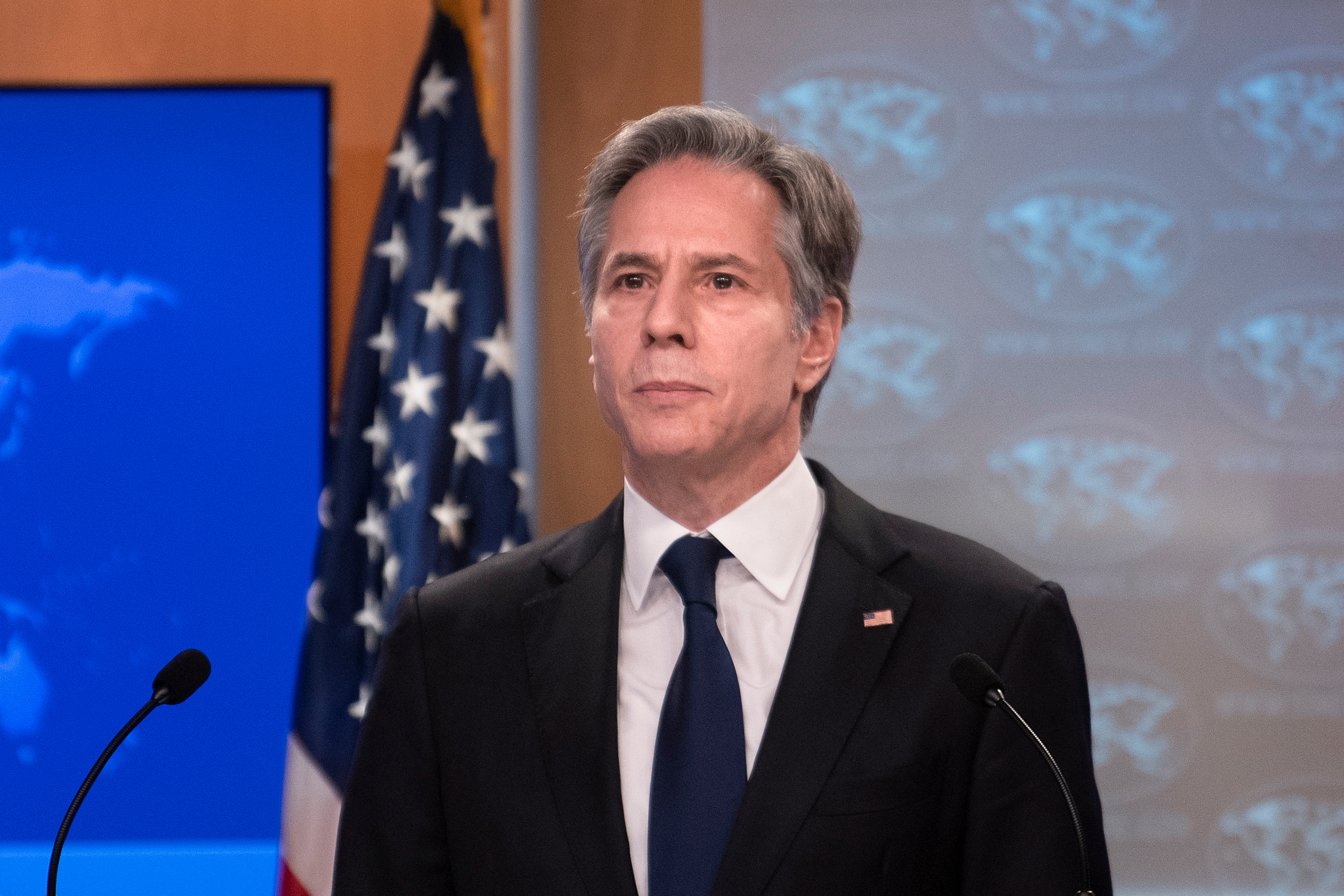
Pentagon says Russian buildup has increased ‘in the last 24 hours’ near Ukraine
Pentagon says Russian buildup has increased “in the last 24 hours” near Ukraine
From CNN’s Michael Conte
The Defense Department said that the buildup of Russian forces near the Ukrainian border has increased “in the last 24 hours.”
“We continue to see, including in the last 24 hours, more accumulation of credible combat forces arrayed by the Russians in, again, the western part of their country and in Belarus,” said Pentagon press secretary John Kirby.
Kirby said the buildup has been “not dramatic,” but “also not sclerotic.”
European commission president tells CNN “nothing is off the table” when it comes to Russian sanctions
From CNN’s Arnaud Siad, Ben Kirby and Emmet Lyons
European Commission President Ursula von der Leyen said that “nothing is off the table” when it comes to sanctions — including killing the mooted Nord Stream 2 pipeline and removing Russia from SWIFT, a high security network that connect thousands of financial institutions around the world — should Moscow invade Ukraine.
“I want to be very clear — nothing is off of the table,” von der Leyen told CNN’s Christiane Amanpour in an exclusive interview when pressed on whether the EU would axe the prospective energy deal.
“The commission is responsible for designing, shaping and developing the sanctions,” the EU commission president told CNN.
“We are very clear that if there is any further aggression or military aggression of Russia against Ukraine, there will be massive consequences, and severe costs for Russia,” she added.
Von der Leyen pointed to Russia’s reliance on trade with the European Union and said that the EU held significant economic leverage.
“You should not forget that the European Union is the biggest trading partner to Russia. Around about 40% of the trade and goods is done between Russia and the European Union. The European Union is also the biggest foreign investor in Russia — 75% of the foreign direct investment is coming from the European Union, and so these figures tell you that we have a strong leverage, and it would be very painful for Russia in the case that they increase this aggression against Ukraine.”
In call with Biden today, Zelensky is expected to air concerns about US public rhetoric on Russia
From CNN’s Matthew Chance, Katya Krebs and Natasha Bertrand
Ukrainian President Volodymyr Zelensky will hold a call with President Biden today, his office told CNN.
The conversation is expected to be a “logical continuation of close cooperation, coordination of actions and evidence of support to Ukraine from its reliable partner,” Zelensky’s spokesperson Serhiy Nikiforov said on Facebook.
“The leaders can be expected to address issues of peace, security, including energy, defence cooperation, macro-financial support, and anti-oligarchic reform. However, the list of topics is not exhaustive,” he said.
A source familiar with Zelensky’s thinking told CNN that Ukraine’s leader is expected to air his concerns about the public rhetoric the US and its allies have engaged in surrounding a potential war between Ukraine and Russia.
Zelensky has been particularly concerned about the US’ rhetoric that war could be “imminent” — a word White House press secretary Jen Psaki used earlier this week to describe the US’ assessment of Russia’s plans — and the recent disclosures of intelligence to US media, the source said, which “is causing panic and economic disaster for Ukraine.”
Zelensky is expected to convey to Biden that he believes the US and its allies have to be more careful with their messaging surrounding the conflict, the source added.
Ukrainian officials have been similarly unhappy about the US’ decision to order the evacuation of families from the US Embassy in Kyiv, CNN previously reported, which Zelensky warned beforehand would be an “overreaction.”
Additionally, Zelensky hopes to brief Biden on progress made during talks between Ukrainian and Russian officials in Paris this week, which was “very positive” and is being met with “cautious optimism” by the Ukrainian government, the source said.
It will be the second conversation the presidents have had this month and the third in two months, Zelensky’s spokesperson said.
The White House confirmed the call would be occurring this afternoon and a readout of the conversation is expected.
CNN’s Maegan Vazquez contributed reporting to this post.
Turkish president to meet with Putin, offers to mediate talks between Ukraine and Russia
From CNN’s Isil Sariyuce, Uliana Pavlova and Amy Cassidy

Russian President Vladimir Putin will visit Turkey for annual talks with Turkish President Recep Tayyip Erdoğan, Kremlin spokesman Dmitry Peskov told reporters on Thursday.
“President Putin gratefully accepted this invitation,” Peskov said. “They agreed that as soon as there is a resolution on a) the epidemiological situation and b) schedules, he will definitely take advantage of this invitation.”
No date has been arranged yet, but Turkish Foreign Minister Mevlüt Çavuşoğlu told reporters Thursday he had been informed by the Kremlin it will be after Putin returns from the Beijing Olympic Games, which begin Feb. 4.
Speaking in a TV interview broadcast live on Turkish news channel NTV Wednesday, Erdoğan invited Putin for a summit as part of Turkey’s High Level Strategic Cooperation Council Mechanisms, which it shares with both Russia and Ukraine.
Erdoğan also offered to mediate talks between Russia and Ukraine as global efforts continue to de-escalate tensions.
“We want the current tension between Russia and Ukraine to be resolved before it turns into a new crisis,” he told NTV.
“I repeat that we are ready to give support as much as we can. I told this to Putin and [Ukrainian President Volodymyr] Zelensky and I will keep telling them that. We want peace and stability in our region,” he said.
“If they wish, we can bring the two leaders together in our country and pave the way for the re-establishment of the peace environment,” he added.
Erdoğan warned that “war between two countries” will cause harm to the region and reaffirmed Turkey – a NATO member – will continue to support Ukraine’s territorial integrity.
“It is our greatest wish that the efforts of NATO on this issue will be successful. Our country has supported Ukraine’s territorial integrity and sovereignty from the very beginning,” he said.
“We had a clear stance against Russia when it targets Ukraine’s territorial integrity such as Crimea annexation. Our attitude is not going to change. I hope that Russia will not conduct an armed attack or occupation of Ukraine. This is not rational for Russia and [the] region,” Erdoğan continued.
NATO has been an active participant in supporting Ukraine through its tensions with Russia. Here’s how
From CNN’s Ivana Kottasová and Bryony Jones
NATO — short for the North Atlantic Treaty Organization — is a non-aggressive European and North American defense alliance set up to promote peace and stability and to safeguard the security of its members.
It was created as the Cold War escalated. Its aim was to protect Western European countries from the threat posed by the Soviet Union and to counter the spread of Communism after World War II. Over the decades, the alliance has grown, with 30 members today.
What might it do in Ukraine?
NATO already had troops in eastern Europe before the most recent increase in tensions with Russia, but it has boosted its presence there in recent weeks.
According to NATO, there are currently four multinational battalion-size battlegroups in Estonia, Latvia, Lithuania and Poland on a rotational basis.
These battlegroups are led by the UK, Canada, Germany and the US. NATO said on Jan. 7 they are “robust and combat-ready forces.”
NATO Secretary General Jens Stoltenberg said the alliance is prepared to rapidly reinforce that presence further by sending additional forces and capabilities into the area.
Several NATO countries have started sending weapons and ammunition to Ukraine.
Why is Germany being criticized?
Berlin has come under criticism recently for its policy of not exporting weapons to crisis areas.
Germany has so far refused to send arms to Ukraine, promising instead to give Kyiv a field hospital, medical training and 5,000 military helmets.
Germany’s complicated history means its governments have always been cautious about military spending, and the idea of getting directly involved in a conflict is a difficult one to sell there. It has also been criticized for failing to reach the 2% GDP spending target, along with other countries.
CNN’s Frederik Pleitgen and Nadine Schmidt in Berlin contributed reporting.
Here’s what’s at stake for Germany as tensions simmer on the Russia-Ukraine border
From CNN’s Nadine Schmidt, Ivana Kottasová and Aditi Sangal

An undersea pipeline, Nord Stream 2, that is set to deliver gas from Russia to Germany has a point of vulnerability for Germany as tensions simmer on the Russia-Ukraine border.
The 1,200-km (750-mile) pipeline was completed in September and is now awaiting final certification. But even though the pipeline isn’t operational yet, it has already acted as a huge wedge between the traditional allies at a time of huge tensions between Russia and the West.
“Given that Russia’s aim is to split everybody, if they’re seeking to break apart unity in the European Union and in NATO, this pipeline has been a wonderful vessel,” said Kristine Berzina, a senior fellow at the German Marshall Fund of the United States, a nonpartisan research center.
As Russia’s biggest gas customer, Germany had been reluctant to use the pipeline to put pressure on Moscow. Less than two weeks ago, German Defense Minister Christine Lambrecht warned against dragging Nord Stream 2 into the conflict.
Yet as tensions built up between Russia and the West over Ukraine, the claim has been quietly dropped by the Germans.
On Thursday, German Foreign Minister Annalena Baerbock warned, “Renewed military action against Ukraine would have massive consequences for Russia.”
“We are working on a strong package of sanctions. In the event of new aggression, the full range of our responses is available — including Nord Stream 2,” Baerbock told lawmakers in the German parliament.
The German Foreign Minister went on to say “this is anything but an easy political time, because it is hard not to see it as a threat when over 100,000 troops with tanks and guns/weapons gather near Ukraine for no comprehensible reason and more troops are being amassed in Belarus.”
“The Russian government has confronted us with demands for so-called security guarantees, which are incompatible with the European security order. The German government’s response to this is united and firm,” she added.
You can read more here.
Russia: Idea of war with Ukraine is “unacceptable”
From CNN’s Vasco Cotovio
Moscow considers the idea of war between Russia and Ukraine “unacceptable,” Alexey Zaytsev, deputy spokesperson for the Russian Foreign Ministry, told journalists during a briefing on Thursday.
“We have repeatedly stated that our country is not going to attack anyone,“ Zaytsev said. “We consider unacceptable even the idea of a war between our peoples. However, the overseas superiors of Ukraine think differently. It seems they intend to currently adhere to the scenario they invented.”
Zaytsev went on to say dialogue with Ukraine in Paris on Wednesday “was not easy” and ended without result. He added he hoped for a different outcome when the four countries – Russia, Ukraine, Germany and France – meet again in Berlin in two weeks.
In the meantime, he called on NATO to cease its interference in Ukraine.
“We hope that the NATO countries will stop … and refrain from interfering in the internal affairs of this country, which should allow the contracting Ukrainian parties to resolve their differences in their dialogue with each other,” he said.
Chinese foreign minister and US secretary of state discuss Ukraine in phone call
From CNN’s Beijing Bureau

China’s Foreign Minister Wang Yi discussed the situation in Ukraine with US Secretary of State Antony Blinken during a phone call Thursday.
During the call, Blinken “underscored the global security and economic risks posed by further Russian aggression against Ukraine and conveyed that de-escalation and diplomacy are the responsible way forward,” according to State Department Spokesperson Ned Price.
Wang said that “the security of a country cannot be at the expense of harming other countries’ security, and regional security cannot be guaranteed by strengthening or even expanding military blocs,” adding that “Russia’s reasonable security concerns should be taken seriously and resolved,” according to a statement issued by China’s Foreign Ministry (MOFA).
“We call on all parties to keep calm, stop doing things which stimulate tension and hype up the crisis,” Wang said, according to the statement.
He added that parties should “abandon the Cold War mentality” and return to the 2015 Minsk II agreement, which sought to end fighting in the Donbas region of Ukraine.
The two also discussed the upcoming Winter Olympics and Taiwan.
Irish fishermen plan to disrupt Russian naval exercises citing environmental concerns
From CNN’s Jack Guy
Irish fishers are set to meet with the Russian ambassador to Ireland to express their concerns over military exercises set to take place off the southwest coast of the country.
The Russian exercises are scheduled for early next month and will last a number of days, reports CNN affiliate Virgin Media News.
The fishermen have raised concerns over environmental damage which could affect their livelihoods.
“These are war games,” Patrick Murphy of the Irish South and West Fish Producers Organisation told Virgin Media News. “They are doing this to send a message but the people that they’re going to hurt the most is our fishing communities.”
Murphy said that boats have been sunk by submarines in the past. “But the damage that we don’t know is the damage to the marine environment,” he added.
Fisherman John D O’Sullivan wondered why Russia had chosen the fertile fishing grounds of the Celtic Shelf to perform the exercises.
“It shouldn’t be allowed to happen on the shelf,” said O’Sullivan. “There’s plenty water west.”
On Tuesday Ireland’s public service broadcaster RTE reported that some fishermen plan to use their boats to “peacefully disrupt” the Russian exercises.
However the Russian ambassador to Ireland Yury Filatov played down the controversy, calling it “hugely overblown.”
Filatov said Irish authorities have been notified about the exercises, which are part of regular training.
“This is not in any way a threat to Ireland,” he said.
Source: https://www.cnn.com/europe/live-news/ukraine-russia-news-01-27-22/h_45ba1c453968437bbe9ce4306bbe62f8















